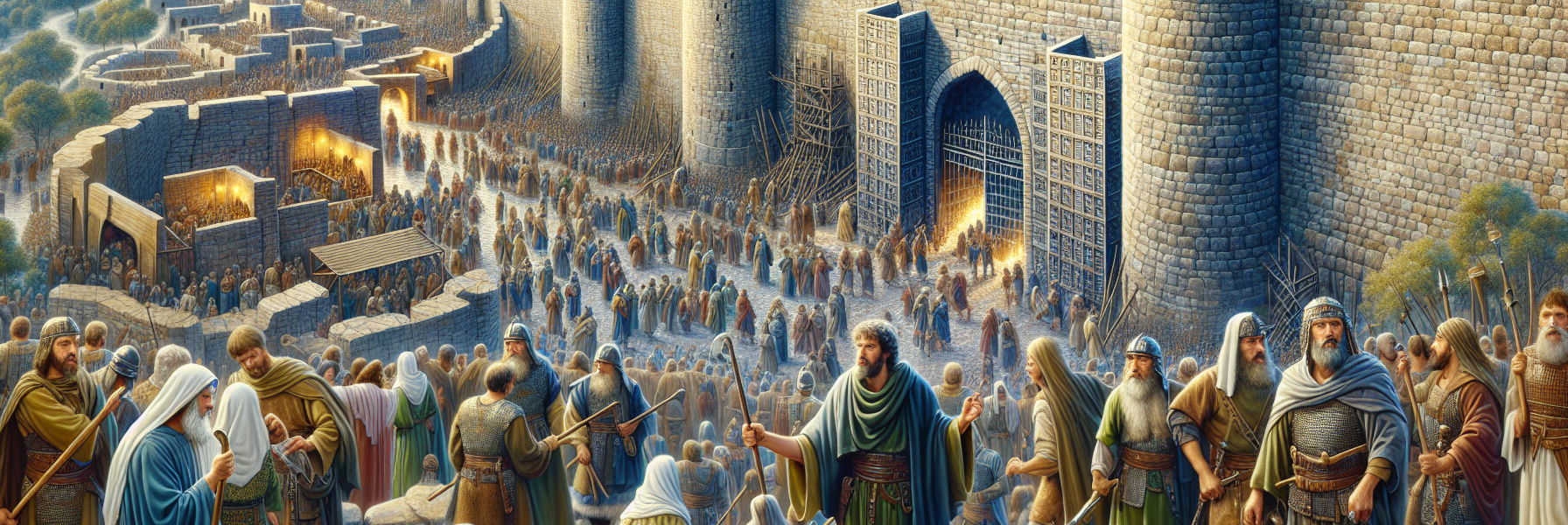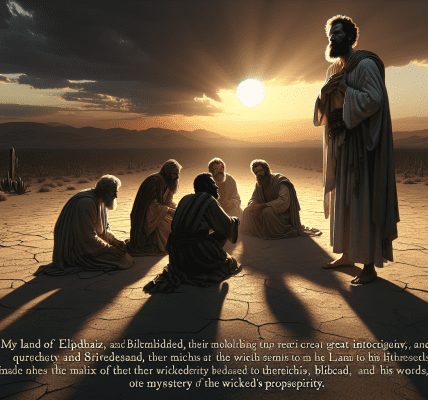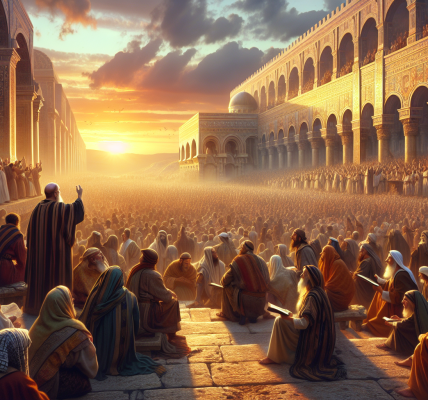**The Stewardship of Nehemiah: Guarding the Restored City**
The walls of Jerusalem stood tall once more, their stones firmly set, their gates reinforced with iron and bronze. The labor of many hands—men and women, young and old—had borne fruit under the leadership of Nehemiah. The relentless threats of Sanballat, Tobiah, and Geshem had been overcome, and the people had worked with swords at their sides, ever vigilant, yet never ceasing their sacred task. Now, the city was secure, its breaches healed, its dignity restored.
But Nehemiah knew that rebuilding the walls was only the beginning. A city without order, without faithful stewards, would soon fall into disarray. So he turned his attention to the next great work: ensuring Jerusalem was not only protected but wisely governed.
### **The Appointment of Faithful Leaders**
Nehemiah summoned the nobles, the officials, and the people to gather before him in the shadow of the newly raised walls. The sun glinted off the polished stones as he addressed them, his voice steady and resolute.
*”The work is complete, but our vigilance must not waver,”* he declared. *”A city must be guarded not only by walls but by men of honor, men who fear the Lord above all.”*
He had already appointed his brother Hanani, a man of integrity, as a leader over Jerusalem, along with Hananiah, the commander of the citadel—a man more faithful and God-fearing than many. Nehemiah had given them strict instructions:
*”Do not let the gates of Jerusalem be opened until the sun is hot. And while the guards are still on duty, have them shut and bar the doors. Appoint residents of Jerusalem as guards, some at their posts and some near their own homes.”*
The people nodded in agreement, understanding the wisdom in his words. Jerusalem would not be careless again.
### **The Discovery of the Genealogical Record**
As Nehemiah sought to organize the city, the Lord laid something upon his heart—a need to account for the people, to ensure that those dwelling within the holy city were truly of Israel. He remembered a sacred record, a genealogy of the first exiles who had returned under Zerubbabel and Jeshua decades before.
He sent for the scroll, and when it was brought to him, he unrolled it carefully, the aged parchment crackling under his fingers. There, inscribed in meticulous detail, were the names of the families who had answered the call to return from Babylon, who had left behind the comfort of exile to rebuild the ruins of their homeland.
Nehemiah read aloud to the assembly, his voice carrying over the crowd:
*”These are the people of the province who came up from the captivity of the exiles, whom Nebuchadnezzar king of Babylon had taken captive. They returned to Jerusalem and Judah, each to his own town.”*
The list was long and precise—the descendants of Parosh, Shephatiah, Arah, Pahath-Moab, Elam, Zattu, and many more. The numbers were recorded: 42,360 souls, besides their male and female servants, their singers, and their livestock.
### **The People’s Response**
As the names were read, a murmur spread through the crowd. Some recognized their ancestors, their lineage confirmed before all. Others bowed their heads, perhaps realizing they had no record, no proof of their heritage.
Nehemiah saw the mixture of pride and uncertainty in their faces and raised his hand for silence.
*”The Lord has brought us back to this land, not for our own glory, but for His,”* he reminded them. *”Let us not forget the faithfulness of those who came before us, nor neglect our own duty to walk in righteousness.”*
Then, turning to the priests, he instructed them to examine the records carefully, to ensure that only those who could prove their lineage served in the house of God. For the priesthood was a holy calling, and none but the true descendants of Aaron should minister before the Lord.
### **A Call to Stewardship and Worship**
With the city secured and the people accounted for, Nehemiah led them in an act of dedication. They brought offerings—grain, wine, and oil—to the house of God, giving thanks for His protection and provision. The Levites, purified for service, sang psalms of praise, their voices rising above the walls, a sweet fragrance of worship to the Lord.
Nehemiah stood before them, his heart full. The work was far from over, but the foundation had been laid—not just in stone and mortar, but in faithfulness and order.
*”Remember this day,”* he said. *”Remember how the Lord has brought us back from ruin. Let us never again forsake His commandments, but let us walk in His ways, that He may bless us and keep us forever.”*
And the people answered with one voice: *”Amen!”*
For they knew that Nehemiah was not merely a builder of walls, but a shepherd of souls—a man who sought first the glory of God and the good of His people. And under his care, Jerusalem would not only stand—it would thrive.




